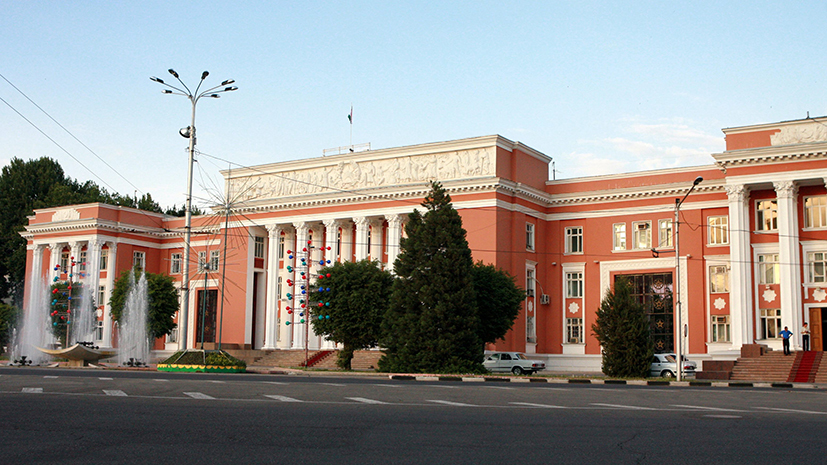The lower house of the parliament of Tajikistan adopted amendments to the law on state registration of acts of civil status, which implies a ban on the use of Slavic suffixes in surnames and patronymics.
According to the press service of the country's parliament, birth certificates in Tajikistan will be issued with the exception of the suffixes characteristic of the Russian language: “ov / ev”, “aries / evn” and “ovich / evich”.
It is specified that the measure does not apply to those who have already received birth certificates with the corresponding suffixes in surnames and patronymics. This category of citizens will be able to get passports with the same names.
“The amendments made to the law“ On state registration of acts of civil status ”concern those who will receive a birth certificate after the law enters into force,” the parliament said.
“Now traditional Tajik endings will be used, such as“ zod ”,“ zoda ”,“ he ”,“ yong ”,“ spirit ”,“ pur ”and“ headlights ”. An exception is made for representatives of national minorities living in the territory of the republic, ”the statement said.
The authorities of the republic believe that the measure promotes the growth of patriotic sentiments among the country's population. The parliament recalled that since 2007 in Tajikistan they began to use surnames and patronymics without Russian affixes. In particular, the president of Tajikistan changed his name from Emomali Rakhmonov to Emomali Rahmon. After this, Rakhmon’s example was followed by many officials.
For example, the head of the Ministry of Health Salimov Nusratullo Fayzulloevich changed his name to Nusratullo Fayzullo. The Minister of Agriculture, Kosim Kosimov, took instead his surname Rohbar.
- The building of the Parliament of the Republic of Tajikistan in Dushanbe.
- © Ruslan Krivobok / RIA News
At the same time, in February 2020, it became known that five schools with instruction in Russian would be built in Tajikistan.
On February 12, the Federation Council approved at the meeting a law on ratification of the agreement signed last year by the governments of Russia and Tajikistan. According to the document, comprehensive schools with instruction in Russian will appear in the cities of Dushanbe, Kulyab, Khujand, Bohtar and Tursunzade. In each of them, up to 1,200 children will study.
As Farit Mukhametshin, deputy chairman of the Federation Council committee on international affairs under the president of Tatarstan, noted in a conversation with Rossiyskaya Gazeta, the construction of several educational institutions in one country is “an important humanitarian action.”
It is noted that Russia, with the involvement of the Eurasian Fund for Stabilization and Development, will take on the financing of the construction and equipping of schools with everything necessary, including medical rooms.
Tajikistan intends to build communications at its own expense and build access roads. After putting the schools into operation, teaching in them will go according to Russian educational standards.
Transition to Latin
In October 2017, the head of the Republic of Kazakhstan, Nursultan Nazarbayev, approved a new alphabet for the Kazakh language. The measure involves the transition from Cyrillic to Latin script by 2025.
“The transition to the Latin alphabet is not a whim, it is a spirit of the times. When I speak of a able-bodied state, I speak of able-bodied citizens. You need to know the international language - English, because everything advanced is supported on it, ”Nazarbayev noted.
The country's authorities added that the measure will help unite the Kazakh community, including those Kazakhs who live abroad.
Nazarbayev also emphasized that the innovation will not affect the rights of the Russian-speaking population of the country.
“I especially want to emphasize once again that the transition of the Kazakh language to the Latin alphabet does not in any way affect the rights of Russian-speaking, Russian, or other languages. The status of using the Russian language remains unchanged, it will function in the same way as before, ”Nazarbayev said.
The translation of the national language from Cyrillic into the Latin alphabet was previously carried out by Moldova, Azerbaijan, Turkmenistan and Uzbekistan.

